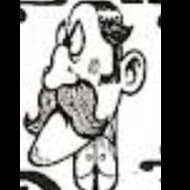May I Mention The 'h' Word [h*e*m*p] On Thaivisa?
-
Recently Browsing 0 members
- No registered users viewing this page.
-
Topics
-
-
Popular Contributors
-
-
Latest posts...
-
144
Israel slaughters 5 more journalists
Palestinian diplomat urged media access to Gaza before deadly strike on reporters In a speech on 10 August, Palestine's UN Ambassador Riyad Mansour urged the Security Council to send 100 journalists to Gaza to observe the situation. During an emergency meeting, Ambassador Mansour challenged Benjamin Netanyahu's claims of a “global conspiracy” regarding events in Gaza. Hours after his address, an Israeli airstrike targeted a tent housing journalists outside al-Shifa Hospital in Gaza City. The strike resulted in the deaths of five Al Jazeera reporters, including 28-year-old correspondent Anas al-Sharif. Watch the video in full: Palestinian diplomat urged media access to Gaza before deadly strike on reporters -
8
Tourism Tourist Arrivals in Thailand Drop by 5%
Mass tourism is a disaster on so many levels that any decline in numbers is good news. -
107
UK Sudanese Migrant 'Tried to Snatch Girl in Front of Dad'
Good enough for these Illegals Roo860. A few of these Camps around the Country keep them till there allowed to stay the rest kick them out, they look basic but better than a Tarp in France. -
19
The smell of lefty's imploding everywhere News...
Quite emancipated. They appear to reside in California. -
-
33
Options for investing Thai baht
Many need a agent to help them with the 800.000 baht.Means no savings and live almost from hand to mouth on daily basis.
-
-
Popular in The Pub





.thumb.jpg.3ee24d9400fb02605ea21bc13b1bf901.jpg)

Recommended Posts
Create an account or sign in to comment
You need to be a member in order to leave a comment
Create an account
Sign up for a new account in our community. It's easy!
Register a new accountSign in
Already have an account? Sign in here.
Sign In Now